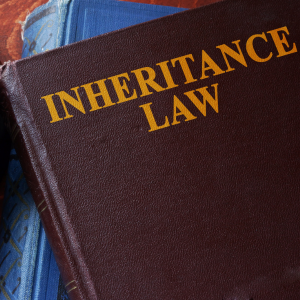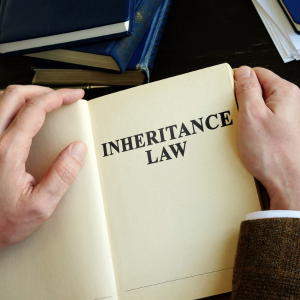
Key Differences Between Wills and Trusts in Kentucky Estate Planning
To manage real estate and housing inheritance well in Kentucky, you must know the main differences between wills and trusts. A will is a legal document that tells people how to divide up a person’s property, including real estate, after death.
It must go through probate, a court-supervised process that can take a long time and cost much money. On the other hand, a trust, especially a living trust, allows property to go straight to the people who need it without going through probate.
Trusts offer more privacy than wills because they do not become public record during probate proceedings. Moreover, trusts can provide greater control over asset distribution by stipulating when and how heirs receive their inheritance.
If the grantor becomes handicapped, trusts can handle assets before death, unlike wills. Trusts enable easy real estate transfers in Kentucky without the delays and costs of probate.
Understanding these distinctions is crucial for anyone looking to secure their legacy through strategic estate planning in Kentucky.
If you’ve inherited a house in Kentucky, understanding the difference between a will and a trust can save you time, money, and stress, especially when you’re ready to sell fast for cash. Here’s how Kentucky Sell Now can help.
Legal Requirements for Creating a Valid Will in Kentucky
Understanding the legal criteria for writing a valid will in Kentucky is essential for distributing real estate and housing assets as desired. Kentucky law requires the testator to be 18 years old and of sound mind to make a legally enforceable will.

The testator must write and sign the will before two competent witnesses. These witnesses should not profit from the desire to avoid a conflict of interest.
Kentucky law allows for self-proving wills, simplifying probate proceedings; this requires an additional affidavit attached to the will that both the testator and witnesses sign before a notary public. While oral wills are generally not recognized for real estate and housing inheritance in Kentucky, holographic wills, which are entirely handwritten by the testator, can be valid if proven authentic by credible evidence during probate.
According to Kentucky inheritance rules, you should meet all legal requirements to avoid disagreements about how to distribute property.
Intestate Succession Laws: What Happens Without a Will in Kentucky?
If someone dies in Kentucky without a will, their real estate and housing assets are divided according to the state’s intestate succession laws. These laws decide who will inherit the estate and in what order.
If the spouse is alive and has no kids, they usually inherit the real estate. But if there are kids or grandkids, the husband and the kids get part of the inheritance.
Parents or siblings get the money without a spouse or direct descendant. Under Kentucky’s intestate succession rules, distant relatives like grandparents, aunts, uncles, or cousins may inherit if there are no direct family members.
Familial relationships decide how real estate is divided among successors and can significantly affect how it is divided. Knowing these regulations to handle inheritance issues correctly is very important if the deceased person didn’t leave a will.
Understanding Inheritance Tax Regulations in Kentucky
Kentucky inheritance laws regarding real estate and housing can be complex, especially when understanding the intricacies of inheritance tax regulations. In Kentucky, there is no state-level inheritance tax, which means that heirs are not required to pay taxes on property or assets they inherit from a decedent.
However, this does not exempt estates from federal estate taxes if they exceed the federal exemption limit. Beneficiaries and executors need to understand how these federal rules might apply to an inherited estate in Kentucky.
Furthermore, even though Kentucky does not impose an inheritance tax, other factors, including the probate procedures and possible capital gains taxes on the sale of inherited property, still need careful thought. To guarantee a seamless transfer of real estate assets, executors managing estates should be well aware of any applicable timeframes and documentation requirements under Kentucky law.
Legal advice from a professional familiar with local regulations and federal tax implications can be invaluable in navigating these matters effectively. Understanding these key elements ensures compliance with state and national laws while safeguarding inherited property interests for future generations.
Spousal Rights and Elective Shares in Kentucky Inheritance Law
When someone dies in Kentucky, the rules about spousal rights and elective shares are fundamental when distributing real estate and housing assets. The law in Kentucky protects the living spouse of a person who lives in the state after they die.
If the deceased did not leave a will, the spouse typically has a legal claim to a significant portion of the estate, which may include real estate properties. Even if there is a will, Kentucky law provides an elective share that allows the surviving spouse to claim up to one-third of the decedent’s estate.
This elective share can benefit real estate assets since it assures that the surviving spouse receives adequate compensation. The law acknowledges that a house and property are critical to a couple’s fortune; therefore, it handles these assets fairly during probate.
Understanding these provisions is essential for anyone navigating inheritance issues in Kentucky. They ensure that a spouse’s real estate and housing rights are upheld according to state statutes.
Impact of Marriage and Divorce on Inheritance Rights in Kentucky
Marriage and divorce greatly affect Kentucky’s real estate and housing inheritance laws. Kentucky law grants the spouse legal rights to the couple’s marital property, including real estate, upon marriage.
Marriage and divorce greatly affect real estate and housing inheritance rights in Kentucky. In Kentucky, a spouse automatically inherits certain legal rights to the couple’s marital property, including real estate.
Once a divorce is finalized, legal documents like trusts or wills must give former spouses the right to inherit. If they don’t, those rights are lost. It’s important to remember that prenuptial and postnuptial agreements can change how property is divided in the event of death or divorce by clarifying each party’s property rights and plans.
Understanding how these agreements relate to Kentucky inheritance laws is essential to ensuring a fair distribution of assets in situations where property is still jointly owned after a divorce.
Understanding Guardianship Designations for Minors in Kentucky Wills
It’s important to grasp what guardianship designations entail for minors in Kentucky wills while considering inheritance rules for real estate and residences. In Kentucky, parents write a will to name someone to take care of their kids if they die. This ensures the guardian looks after and protects the kids as the parents want.
This title is significant for inheriting real estate because the guardian you choose may be in charge of property left to minors. In Kentucky, the will must name the guardian to avoid confusion or legal problems concerning who will manage the minor’s inherited property.
The probate court is in charge of these guardianship assignments. It ensures that they are in the child’s best interests and that they respect Kentucky’s rules for property and inheritance. Proper guardianship arrangements can protect a child’s financial future and control how inherited real estate is used until the child turns 18.
Parents should talk to experienced estate planning lawyers who know Kentucky’s inheritance laws to ensure they consider all the essential aspects of passing on real estate and homes to their children.
How Joint Tenancy Affects Property Inheritance in Kentucky
In Kentucky, understanding the implications of joint tenancy is crucial for property inheritance. Joint tenancy is a form of property ownership where two or more individuals hold title to real estate with rights of survivorship.
When one joint tenant dies, their share of the property automatically transfers to the surviving joint tenant(s) without going through probate or following the instructions in a will. Because of this, joint tenancy is a good choice for people who want to make it easier to move property when someone dies.
However, it also requires careful consideration as it overrides any testamentary intentions outlined in a will concerning that specific property. In Kentucky, creating a valid joint tenancy involves clear language in the deed stating the intent for rights of survivorship, as ambiguous terminology could result in tenants in common status instead.
It’s also crucial to note that, while joint tenancy can effectively avoid probate difficulties, it may have financial consequences and influence surviving tenants’ Medicaid eligibility. Understanding these intricacies helps property owners make informed decisions regarding managing and transferring their real estate holdings after death, in line with Kentucky inheritance laws.
Inheriting a home through joint tenancy in Kentucky can help you skip probate, but understanding your rights is key if you want to sell quickly. Contact Kentucky Sell Now to learn how we can help.
Using Living Trusts to Avoid Probate in the State of Kentucky
Setting up a living trust can be a good idea to escape the probate process when transferring real estate and housing assets in Kentucky. People can create a living trust while still alive and clearly state how they want their assets distributed after they die.
This legal setup lets the named trustee handle the property the way the grantor wanted, without going through the often time-consuming and expensive probate process. People in Kentucky like living trusts because they are flexible and offer privacy, as trust papers are not public records like probate proceedings.
Furthermore, living trusts can facilitate property ownership transfers more easily by preventing heir conflicts that might occur under Kentucky’s inheritance rules. People in Kentucky can guarantee a more controlled and effective transfer of their real estate assets to beneficiaries by using a living trust, which eliminates the delays typically connected with probate court.
Navigating Probate Court Procedures in Kentucky
Navigating probate court procedures in Kentucky involves understanding the steps required to manage and distribute an estate after a property owner’s death. Probate is essential for transferring real estate ownership and other assets without a living trust.
The process begins by filing a petition with the local county probate court, where the decedent’s will, if it exists, is validated. The court appoints an executor or administrator to oversee the estate’s administration, ensuring that all debts and taxes are settled before distributing the remaining assets to the heirs.
Kentucky law requires creditors and interested parties to receive notices as part of this procedure. Executives must strictly comply with the deadlines established by the court to prevent unwarranted delays.
Real estate must be appraised accurately, often necessitating professional valuation to determine its fair market value. Understanding these procedures ensures compliance with Kentucky inheritance laws while safeguarding the interests of both beneficiaries and creditors throughout the probate process.
The Role of an Executor: Responsibilities and Duties Under Kentucky Law
According to Kentucky inheritance rules, the executor of a deceased person’s estate is very important for effectively managing their estate, especially regarding real estate and housing. If there is no will, a court will choose an executor. The executor follows Kentucky probate law to manage and settle everything in the estate.
This encompasses acquiring assets, such as real estate, paying taxes and obligations, and distributing the remaining assets to the appropriate heirs. The executor is also responsible for administering legal documents and filings with the probate court, crucial for transferring property titles and resolving any claims against the estate.
Executors in Kentucky must follow state regulations about administering estates and doing what is best for the beneficiaries. They might have to oversee evaluations of the estate’s real estate to determine an appropriate value for selling your inherited house and fairly dividing it among the heirs.
Executors are also responsible for keeping property in good condition until it can be sold or transferred, including making the necessary repairs or securing insurance. By being aware of these responsibilities, executors can efficiently carry out their duties under Kentucky law while protecting the interests of all parties involved in inheritance cases involving homes and real estate.
How to Contest a Will in Kentucky: a Step-by-step Guide
Challenging a will in Kentucky necessitates many critical stages that demand a comprehensive understanding of the state’s inheritance statutes. Initially, an individual must establish legal standing, indicating they must be directly impacted by the will’s stipulations, such as being a prospective beneficiary or an heir-at-law.
Following confirmation of standing, a petition contesting the will’s legality must be submitted to the probate court in the county where the deceased lived. According to Kentucky statutes, grounds for contestation may include fraud, undue influence, lack of testamentary ability, or faulty execution.
Before proceeding, it is crucial to gather substantial evidence and documentation to support these claims. Consulting with an attorney specializing in Kentucky estate law can provide invaluable guidance through this complex process.
The lawyer can help you meet deadlines and procedural requirements to get your case heard in court. Understanding that the will contestant has the burden of evidence emphasizes the need for extensive preparation and strategic legal advice throughout this complex process in Kentucky’s probate system.
Inheriting a home in Kentucky, especially one involved in a will dispute, can be stressful and time-consuming. We buy houses in Kentucky and other cities across Kentucky, helping you sell quickly and avoid the hassle of a drawn-out legal process.
Protecting Family Heirlooms Through Estate Planning in Kentucky
Land planning is essential for safeguarding family treasures in Kentucky, especially regarding real estate and housing. Understanding Kentucky inheritance laws helps you organize your estate and pass on prized assets.

Kentucky has specific statutes governing the distribution of property, and incorporating these into a comprehensive estate plan can safeguard family heirlooms from unintended claims or disputes. Using tools such as wills, trusts, and beneficiary designations, you can clearly outline who should inherit particular items or properties.
These legal tools also help minimize probate issues and reduce the chances of heirs fighting over things. It’s essential to think about how to fairly divide up real estate and personal belongings so that each heirloom keeps its sentimental value while meeting any financial obligations that come with inheriting it.
Consulting with an attorney familiar with Kentucky’s inheritance laws can provide invaluable guidance in crafting an effective strategy for preserving sentimental and valuable family assets through proper estate planning.
Digital Assets: Including Online Accounts in Your Kentucky Will
When formulating your estate plan in Kentucky, it is imperative to account for digital assets, encompassing internet accounts such as social media profiles, email accounts, and digital currencies. Kentucky inheritance rules now acknowledge the significance of digital assets, prompting individuals to include them in their wills explicitly.
By incorporating instructions for administering and transferring online accounts into your will, you guarantee that your preferences manage your digital presence. It is advisable to furnish a trusted executor or attorney with a comprehensive list of all pertinent usernames and passwords.
This approach helps prevent unauthorized access and ensures that sentimental items like photos stored on cloud services are preserved or appropriately distributed. Understanding the value and reach of digital assets within Kentucky’s legal framework allows for a thorough estate plan encompassing traditional real estate holdings and modern virtual properties.
Special Considerations for Blended Families When Planning Estates in Ky
Blended families in Kentucky face unique challenges when planning estates, especially regarding real estate and housing inheritance. In these situations, it’s crucial to understand Kentucky’s specific inheritance laws to ensure a fair distribution of assets among spouses, biological children, stepchildren, and other family members.
Kentucky law protects the rights of surviving spouses, but it doesn’t automatically provide stepchildren the right to inherit unless a will or trust says so. So, blended families must ensure their inheritance planning is precise to avoid problems and arguments.
Employing instruments such as wills, trusts, and beneficiary designations can safeguard the interests of each family member following the decedent’s intentions. Moreover, considerations such as potential elective share claims by surviving spouses and how real estate titles are held can profoundly influence the distribution process.
An experienced estate attorney versed in Kentucky laws can help structure an estate plan that meets blended families’ changing needs while complying with state restrictions.
Leveraging Life Insurance Policies for Effective Wealth Transfer in Ky
Leveraging life insurance policies can be a strategic approach to effective wealth transfer under Kentucky inheritance laws, particularly regarding real estate and housing. Life insurance proceeds can provide beneficiaries with immediate liquidity, crucial for covering expenses such as estate taxes or outstanding mortgages on inherited property.
This strategy can prevent the need to sell valuable real estate assets quickly, which might otherwise occur to settle debts or taxes. In Kentucky, life insurance benefits are generally not subject to probate, allowing for a more seamless transfer of wealth outside the often lengthy probate process.
People can ensure their wishes for passing wealth are clear and legally binding by naming specific beneficiaries on a life insurance policy. This can help avoid fights between heirs over inherited real estate. Also, life insurance policies let policyholders balance the inheritance between heirs by giving them cash worth the same as the real estate that is bequeathed to other recipients.
This method of leveraging life insurance enhances the effectiveness of an estate plan by safeguarding real estate assets while ensuring equitable distribution according to the deceased’s wishes in compliance with Kentucky’s legal framework.
If you’ve inherited a house in Kentucky and are weighing your options, using life insurance to cover estate costs can help you avoid selling under pressure. Cash home buyers in Shelbyville and other cities in Kentucky are here when you’re ready to sell on your terms.
Charitable Giving Strategies Within Your Estate Plan for Kentuckians
Incorporating charitable giving strategies into your estate plan can be an effective way for Kentuckians to align their legacy with personal values while navigating Kentucky inheritance laws, particularly regarding real estate and housing. Individuals can potentially reduce their taxable estate and maximize tax benefits by considering options such as charitable remainder trusts or donating property directly to a nonprofit organization.
Estate planners in Kentucky must understand how state-specific restrictions impact their tactics, as there is no state-level estate tax but an inheritance tax that may impact beneficiaries. Working with competent legal practitioners familiar with federal and Kentucky inheritance laws ensures that charity contributions are handled adequately within the estate plan, giving you peace of mind that your philanthropic goals will be fulfilled.
Additionally, leveraging tools like life estates or retained life interests can allow donors to continue living on the property while committing it to charity after their lifetime, offering flexibility in managing real estate assets within the broader scope of their estate planning goals.
Importance of Regularly Updating Your Estate Plan Under Kentucky Law
Kentucky law says you need to update your estate plan regularly to ensure that your real estate and housing assets are divided up how you want them to be. It might be hard to understand how Kentucky’s inheritance laws work, especially when passing on land and real estate.
By consistently revisiting and revising your estate plan, you can accommodate changes in family dynamics, financial circumstances, and legal requirements. An updated estate plan helps prevent potential disputes among heirs and ensures compliance with state-specific inheritance and probate procedures regulations.
In Kentucky, obsolete wills and trusts may give unexpected beneficiaries property or complicate probate. Regular updates enable strategic planning around Kentucky inheritance taxes and exemptions, preserving assets for future generations.
You must maintain an up-to-date estate plan to protect your real estate interests and guarantee a seamless transfer of ownership under Kentucky law.
What Are the Inheritance Laws in Kentucky?
Kentucky inheritance laws for real estate and housing are governed by statutes dictating how property is distributed when an individual dies. In Kentucky, the intestate succession laws come into play if a person dies without a valid will, determining the heirs entitled to inherit property.
A surviving spouse is granted substantial rights under these laws, frequently inheriting the entire estate if there are no progeny. The estate is typically divided between spouses and offspring if children are involved.
Kentucky’s inheritance laws also address scenarios involving other relatives, such as parents or siblings, without direct descendants or a surviving spouse. Kentucky law also requires formalizing any real estate transfer through proper probate proceedings unless an exception applies.
Residents of Kentucky need to comprehend these inheritance rules to guarantee that their intentions about real estate and housing assets are respected posthumously, whether by creating a will or employing alternative estate planning instruments. Comprehending these legal intricacies can avert conflicts among heirs and facilitate a seamless transfer of property ownership following state laws.
How Much Can You Inherit in Kentucky Without Paying Taxes?
In Kentucky, understanding the intricacies of inheritance laws for real estate and housing is crucial, especially when determining tax obligations. The key factor is the relationship between the decedent and the heir.
In Kentucky, the inheritance tax applies primarily to this relationship. Class A beneficiaries, such as spouses, parents, children, and grandchildren, are generally exempt from paying inheritance taxes on any amount of inherited property or assets.
If you fall into one of these categories, you can inherit real estate or housing without worrying about tax liabilities. On the other hand, Class B and Class C beneficiaries, such as siblings, nieces, nephews, and distant relatives, may be subject to inheritance taxes depending on the value of the estate they receive.
These taxes have varying rates and exemptions that need careful consideration when planning an estate or receiving an inheritance in Kentucky. Understanding these distinctions is vital for effectively managing real estate inheritances within state legal frameworks without unexpected financial burdens.
What Rights Do Beneficiaries Have in Kentucky?
Under Kentucky inheritance laws, people who inherit an estate have certain rights regarding real estate and housing. Beneficiaries need to know these rights to get their fair share.

In Kentucky, beneficiaries have the right to know about the probate process. This means they should get notices and updates on how the estate is being managed. They can learn about the estate’s assets, such as real estate and housing properties.
Beneficiaries should also expect the executor or administrator of the estate to keep clear records of all transactions. Beneficiaries have the right to challenge a will if there are reasons, such as undue influence or lack of capacity when it was made.
Also, when there is no will (intestate succession), state intestacy laws stipulate how real estate and housing assets should be divided among heirs. Beneficiaries should also know they can get legal help if there are problems or if they think the estate’s assets are mismanaged.
If beneficiaries know these rights, they can better safeguard their interests in Kentucky’s complicated real estate and housing inheritance rules.
What Beneficiaries Are Exempt From Inheritance Tax in Kentucky?
In Kentucky, beneficiaries trying to prepare an estate need to know about inheritance rules, especially those related to real estate and housing. Particular beneficiaries in Kentucky do not have to pay inheritance tax at all.
The people who don’t have to pay taxes on this money are mostly the deceased’s spouse, parents, children (including adopted children), grandkids, and siblings. Suppose you are a direct lineal descendant or an intimate family member, like a spouse or sibling, and you inherit real estate or housing assets in Kentucky. In that case, you won’t have to pay any inheritance tax on them.
This can greatly affect how people organize their estates and decide to pass on family property. Beneficiaries who know about these exemptions can get the most out of their inheritance and pay the least money throughout the probate process.
Do you have questions or are you thinking about selling? Call us at (502) 610-0070 for a no-pressure, no-obligation cash offer. Let’s get started today!
Useful Kentucky Blog Articles
- Can You Sell A Rental With Tenants In Kentucky
- Can I Sell My House With A HELOC In Kentucky
- Can a Cracked Foundation Be Fixed in Kentucky
- Broken Water Main to House in Kentucky
- Understanding Property Tax Rates For Kentucky Homeowners
- Top Property Management Services In Kentucky
- Restoring Fire-damaged Homes In Kentucky
- Foreclosure Timeline For Homeowners In Kentucky
- Can My Husband Legally Sell Our House Without My Consent in Kentucky?
- Understanding Kentucky Inheritance Laws For Real Estate And Housing
- Downsizing House With Kids in Kentucky: Creating A Cozy Tiny Home Lifestyle With Kids

| INHERITS | TAXED | INTESTATE PROPERTY | INTESTATE SHARE | LAWYER | DECEDENTS |
| LAST WILL AND TESTAMENT | DOWER | CURTESY | TENANCY BY THE ENTIRETY | U.S. | THE UNITED STATES |
| STATUTORY POWER | GREAT GRANDPARENTS | EMAILS | ADOPTION | MOTHER | MONEY |
| INTERNAL REVENUE | GIFT | FOSTER CHILDREN | FATHER | CONSENT | CONFIDENTIAL INFORMATION |
![Understanding Inheritance Laws in [market_city]](https://image-cdn.carrot.com/uploads/sites/31685/2025/07/Understanding-Inheritance-Laws.png)
